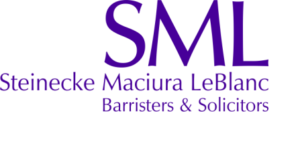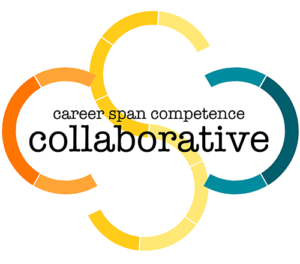The Canadian Network of Agencies for Regulation (CNAR)
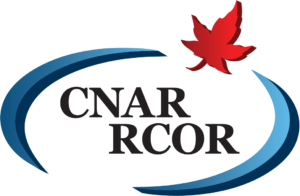
September 9th – November 26th
CNAR 2020: Digital Interactive Event
Join over 400 delegates who have already registered for CNAR 2020, which will be held virtually from September through November 2020. The annual conference addresses emerging regulatory issues and enables the exchange of information between licensing boards, accrediting agencies, examining bodies, and government officials at all levels. CNAR’s Interactive Digital 2020 event promises to be the hub this fall for all Canadian regulators.
Offered in ‘bite-sized’ sessions, CNAR 2020 will provide continuous connection and learning among Canadian regulators on such timely, hot-button issues as diversity, the COVID-19 impact on day-to-day regulatory practices, and more.
CNAR 2020 registration gives you a three-month pass to:
- Over 30 sessions of rich, educational content
- Keynote speakers
- Weekly connection with regulators and experts from across the country
- 60-90 minute sessions to avoid ‘virtual conference fatigue’
- Opportunity to engage with sponsors and learn about the latest industry product/ service offerings
Powerhouse panels will tackle topics such as:
- Modernizing practice standards in response to disruptive technologies
- Successful collaboration among regulators in a multi-generational workplace
- Surviving “monster” discipline hearings
- Effective governance: maximizing innovation in the absence of legislative change
- Examining oversight of regulatory investigations
- Plan to be a part of Canada’s premier event in regulation!
Pricing for the conference is as follows:
- CNAR Member/Partner (per person): $625
- Organization CNAR Member/Partner (up to 10 people): $5,250
- Non-Member (per person): $775
- Organization Non-Member (up to 10 people): $6,750
Each session is accompanied by a live fireside chat to propel discussion between speakers and attendees. This is a space to share insights and connect with other professionals in the industry. We recommend joining in 10 minutes early and introducing yourself in the attendee chat before each session begins.

November Highlights
November 4th: COVID Impact Panel
The regulatory community from east to west discusses the 360-impact of COVID-19. This distinguished panel explores recent pivots necessary in their regulatory work with focus on investigations, hearings, proctoring, and the financial impact in the wake of the pandemic.

Alyson Gaffney
Executive Director
CNAR

Denise Neutel
Director of Certification and Prior Learning Assessment
Canadian Society for Medical Laboratory Science
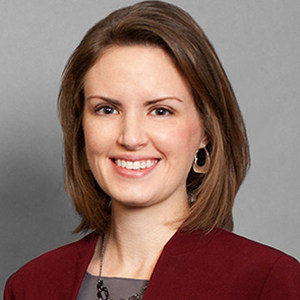
Melissa M. Everett-Withers
General Counsel
Nurses Association of New Brunswick

Dean Benard
President and CEO
Benard + Associates

Jacqueline Messer-Lepage
Executive Director and Registrar
Saskatchewan College of Paramedics
November 11th: Effective Governance: Maximizing Innovation in the Absence of Legislative Change
The duty of every regulatory body and its council is to regulate in the public interest. How does a council achieve effective governance when its legislation presents barriers? There are a number of matters considered to be best practices in governance, including: the size of a council should not exceed 12 members; the number of professional and public members should be equal or the public members should be in the majority; the selection of the council should be based on competencies; and there should be a process to evaluate the effectiveness of the council and its members. Despite a growing consensus on these best practices, provisions in the governing statute may mean that it is not possible in the short term to achieve a legislative change with respect to the size, composition and process for selection of council members. Our panel will discuss various steps that can be taken to improve effective governance of regulatory bodies without legislative change. Deanna Williams will speak on best practices for effective governance of regulatory bodies, based on her experience in Canadian and international jurisdictions. Nancy Lum-Wilson, Registrar and CEO of the Ontario College of Pharmacists, will present on the changes OCP has made to move toward a competency-based Council with elected members who reflect the various populations served by their registrants. Lise Betteridge, Registrar and CEO of the Ontario College of Social Workers and Social Service Workers, will speak about the training the OCSWSSW has developed so that candidates for election to the Council better understand the mandate of the College and the duties of a Council member. Beth Deazeley, Registrar and CEO of the College of Early Childhood Educators, will discuss their process to evaluate the performance of their Council and its members and the recommendations of a recent governance review. Debbie Tarshis, legal counsel, will discuss why a Code of Conduct is essential to effective governance.

Debbie Tarshis
Counsel
WeirFoulds LLP

Lise Betteridge
Registrar & CEO
Ontario College of Social Workers

Beth Deazeley
Chief Executive Officer
Early Childhood Educators of Ontario
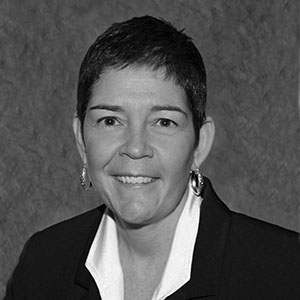
Deanna William
President
Dundee Consulting Group Ltd
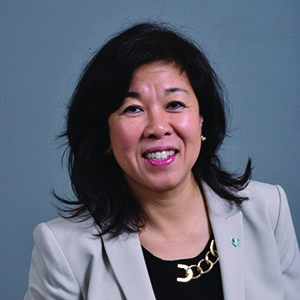
Nancy Lum-Wilson
CEO & Registrar
Ontario College of Pharmacists
November 26th: PechaKucha Series
How will Courts Review Tribunal Decisions? A PechaKucha on the Supreme Court of Canada’s Decision in Canada (Citizenship and Immigration v. Vavilov)
Through the PechaKucha format, I will explain the Supreme Court of Canada’s Decision in Canada (Citizenship and Immigration v. Vavilov and summarize how Courts will review tribunal decisions, including an illustration of the difference between correctness and reasonableness standards, a summary of how the standard will be determined, and an explanation of how tribunals can earn or lose the deference that courts will show them.
What Makes a Good Decision-Maker?: A Top 10 List
Many aspects of professional regulation involve exercising a legal authority to make decisions that require balancing members’ interests and the public interest: evaluation applications for registration; disposing of complaints and reports about members; adjudicating discipline allegations, or a member’s fitness to practise; and so on. What qualities do members, staff of the regulator, and others look for in such decision-makers? This presentation will offer a “Top 10 List” — Fairness, Impartiality, Open-Mindedness, Empathy, Attentiveness, Adaptability, Timeliness, Decisiveness, Rigour and Discretion — and explore how these qualities help instill confidence in the regulator, on the part of both the profession and the public.
The Great Six-Minute Debate – Is Mediation Under Utilized in Regulatory Complaints
Should regulators deal with complaints through alternative dispute resolution (ADR) mechanisms such as mediation? Most regulators have the legislated authority to manage complaints in a manner other than investigation but avoid doing so for a variety of reasons. In some cases, regulators have attempted implementing an ADR program and given up, citing lack of interest by complainants or registrants. This debate will look at both sides of the question. One speaker will make the case for and the other against. Can a cogent argument for the benefits of ADR to the public, registrants and the regulator be articulated in 3 minutes? Can the arguments against these processes be made in 3 minutes? In a “point / counter point” fashion the two speakers will do their best to persuade the audience their respective argument is best.
The Devil is in the Details: Transitioning to Larger Groupings of Regulatory Bodies is a Bigger Challenge Than You Might Think
Amalgamating professional regulators under one umbrella agency, as recently proposed in British Columbia, could prove to be much more difficult than anticipated. In addition to the obvious issues of contractual arrangements involving staff, office space and vendors, there are also a wide range of other challenging aspects for provincially-based entities involving such matters as “national” professional requirements entered into previously for entry-to-practice examinations, language proficiency standards, memoranda of understanding, national professional competencies and standards and representation by individual amalgamated professional regulators on national alliance boards of regulators. In this session, participants will learn of some of the vital issues which will need to be addressed by governments and regulators in order to keep the public interest protected and to make the transition to new large r regulatory entities viable and effective. Solutions to some of the challenges and who should implement them will be advanced and examined.
Regulating in the Public and/or Privacy Interest?
Regulators are often in a position where they must navigate the tension that arises between the need for public transparency and accountability on the one hand, and privacy and confidentiality on the other. This presentation will provide a brief overview of developments in privacy law pertinent to the regulatory sphere and explore where and how conflicts arise. Many self-governing professions have legislation containing provisions regarding a mandatory “duty to report” for members and employers in various situations. Other legislation like the Personal Health Information Protection Act, 2004, also has mandatory reporting requirements. These provisions can require members of regulated professions, operators of facilities where members practice, employers of members, and/or health information custodians to report to the College or regulator where they have reasonable grounds to believe another member has engaged in certain kinds of professional misconduct. Failure to make a mandatory report is an offence punishable by significant fines. However, the requirement to report can engage questions of privacy and confidentiality, including: What is the threshold for information to be considered ‘reasonable grounds’ to report? If there is not sufficient information to constitute ‘reasonable grounds’, could a reporter be found guilty of professional misconduct? How does the duty to report intersect with the rights of others to privacy, especially given there may be a requirement to publish information regarding allegations on the public register? In circumstances of a report based on false information, might a member be liable in tort? The Supreme Court has recently recognized a new privacy tort in Yenovkian v. Gulian (December 19, 2019) of “publicity placing a person in a false light” – how might this tort be used? A review of recent case law and legislation will speak to these questions, and consider how this landscape may continue to evolve.

Lonny Rosen
Partner
Rosen Sunshine LLP

Aaron Dantowitz
Partner
Stockwoods LLP

Jeremy Quesnelle
Deputy Registrar
College of Naturopaths of Ontario

Dean Benard
President
Benard + Associates

Cathi Mietkiewicz
Principal Lawyer
Mietkiewicz Law

Brian O’Riordan
Registrar
College of Audiologists and Speech-Language Pathologists of Ontario

Ada Keon
Associate
WeirFoulds LLP
Sponsors
Interested in sponsoring CNAR 2020? Click HERE for the prospectus. We also encourage you to follow us on Twitter (@cnar_rcor) and LinkedIn (CNAR RCOR) for the latest information about CNAR 2020! Be sure to use our hashtag: #CNAR2020
FAQs
Absolutely! Throughout the session, there will be a simultaneous interactive live chat.
CNAR 2020 will run for three months: September, October, and November, 2020. Sessions will be broadcast every Wednesday and Thursday, commencing at 12 noon Eastern Time for approximately 60 minutes each.
CNAR 2020 will be exclusively virtual this year. We are very pleased to host a diverse group of professionals and experts from across Canada on a platform that optimizes continuous connection with one another, the sharing of experiences, and best practices.
Yes. Please contact Alana Coleman, Director, Communications and Member Services with inquiries. Her contact information is as follows: acoleman@cnar-rcor.ca; 613-410-6998.
You will have the opportunity to interact with speakers throughout the interactive live chat. Each session will also feature a 10-minute Q&A session (via the live chat) at the end of the recorded
presentation so you can ask the speakers specific questions.
Any further follow up may be arranged per speakers’ availability and preference. Please contact Alana Coleman at acoleman@cnar-rcor.ca to arrange a follow up discussion.
Virtual conference attendees can pose questions to the session speakers through the interactive live chat. Speakers and facilitators will encourage an active attendee live chat – with both the speakers and each another – throughout the presentation.
Individual sessions will be available on demand two weeks after each broadcast. The content playback will be available for three months after the Conference.
Registration for the event is open and ongoing, accessible through the link above. Late registration fees will apply after September 8th, as the event commences.
Registration fees are non-refundable and non-transferrable. With your registration fee, you will have access to content playback for three months after the event closes on November 26th, 2020.
CNAR 2020 has proudly partnered with Matchbox Virtual Media and CE21 to present this event.
CNAR 2020 Conference attendees receive a discount to the October workshops. Please visit www.cnar-rcor.ca to register for the individual workshops and select the ticket “With CNAR 2020 Registration.”
Yes. If you would like to have access to the Conference material, you need to register. Please contact Alana at acoleman@cnar-rcor.ca for the speaker discount code valued at $200.
Please contact Alana Coleman at acoleman@cnar-rcor.ca or 613-410-6998.
Please direct questions regarding accessing the Conference to support@matchboxvirtual.com
Although we highly recommend Chrome for the smoothest user experience on any website, here’s a handy link to download Edge, which is Microsoft’s move away from IE: https://www.microsoft.com/en-ca/windows/microsoft-edge. The quality will be compromised on Internet Explorer 8.
